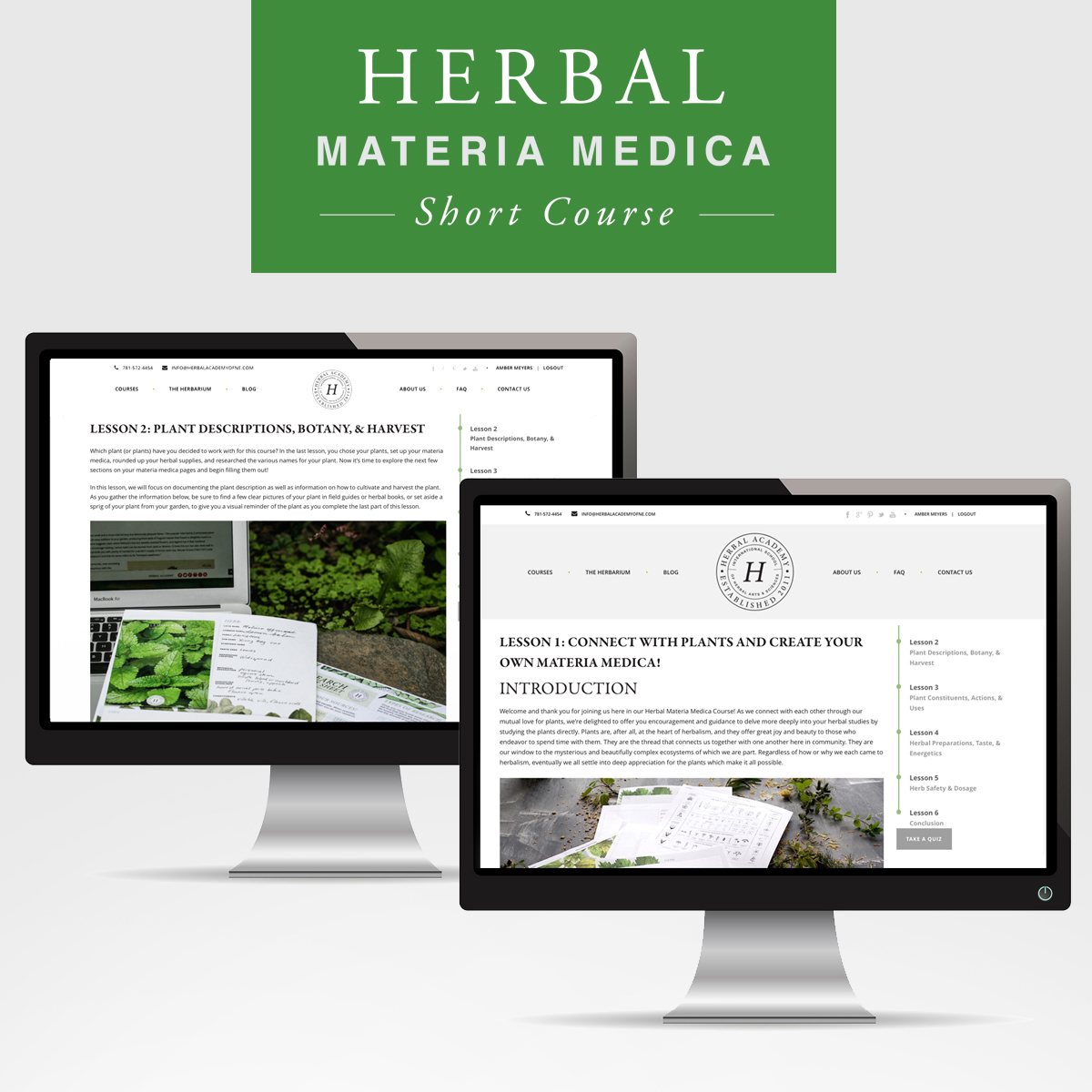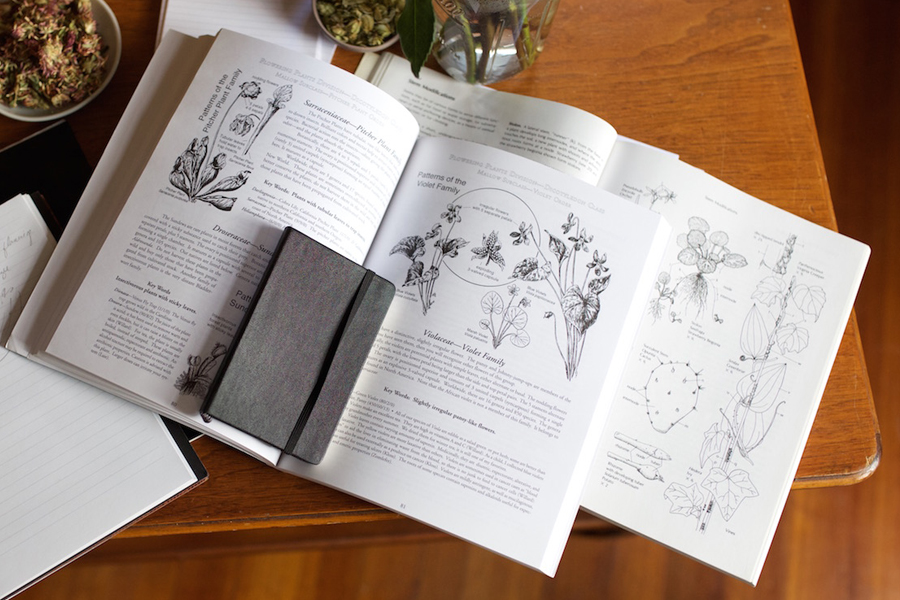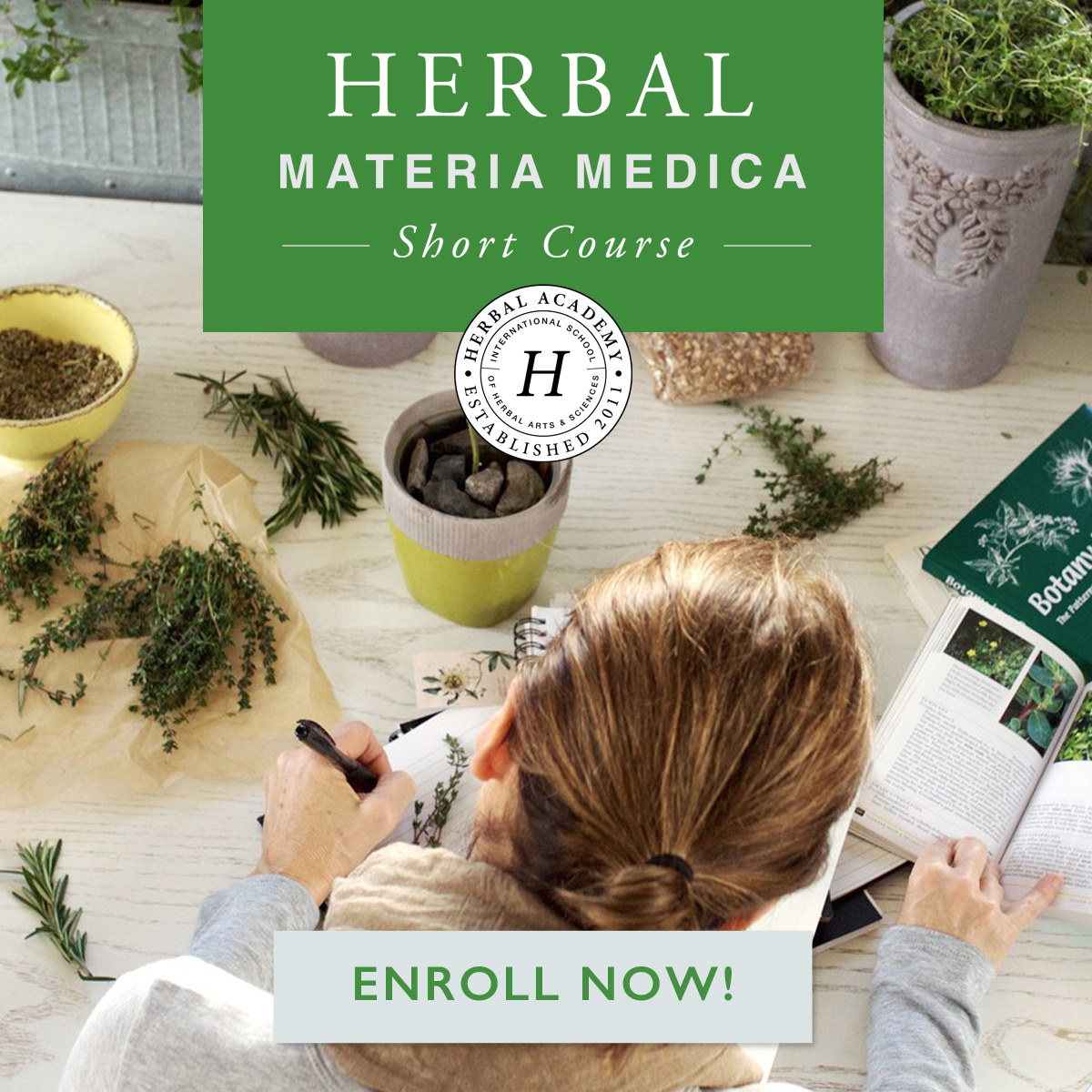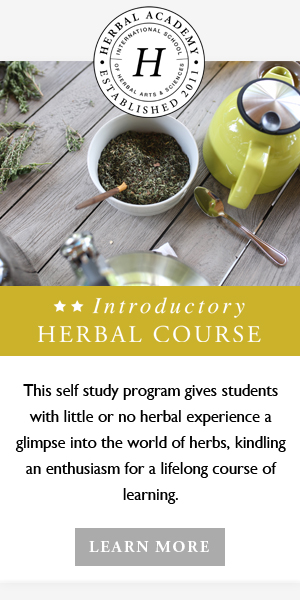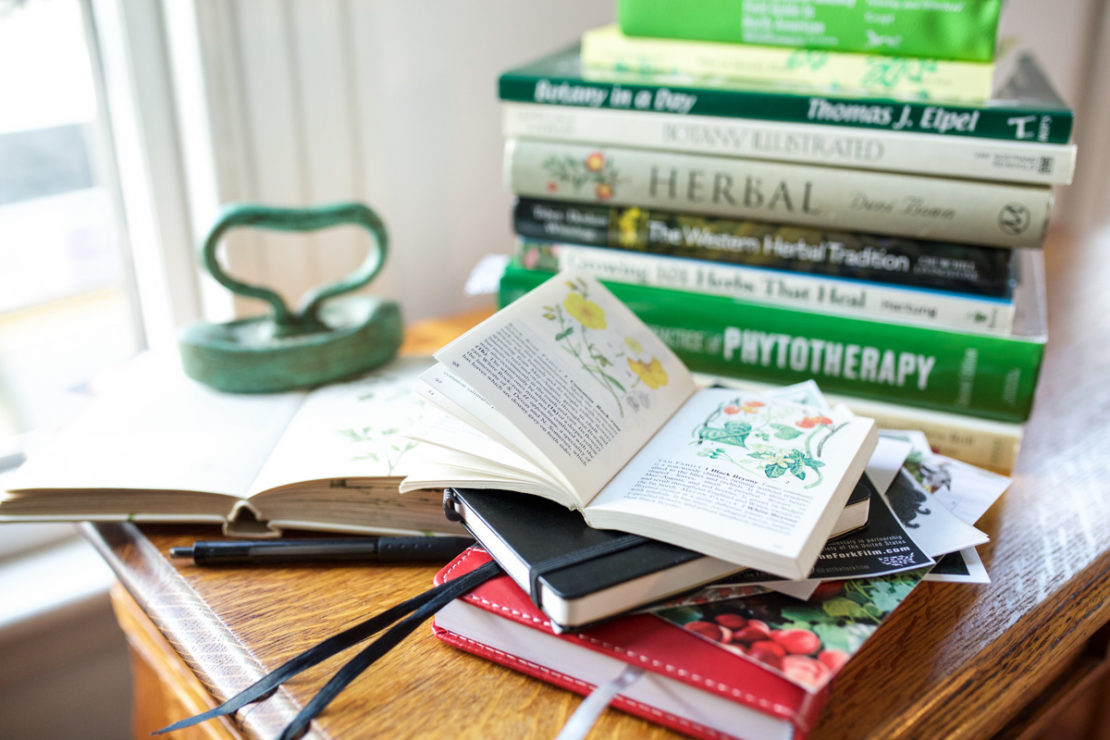
Gathering Supplies for your Herbal Materia Medica
A couple of weeks ago, we told you about our newest course here at the Herbal Academy—the Herbal Materia Medica Course.
To quickly recap, we’re offering this course during January 2017, and it will focus on teaching you how to create your own herbal materia medica. A “materia medica” is a collection of in-depth plant profiles, or monographs, that herbalists use as a tool for learning and reference.
This course is designed to break down the steps of creating your own plant monographs that you will include in your materia medica. This will not only help you connect with individual herbs through in-depth study, but it will also help you to organize what you’re learning about herbs for future reference.
You can get more information about our newest course here.
The Herbal Materia Medica Course Is Now Open
The Herbal Materia Medica Course is now open! That means that you can get started on the lessons as soon as you sign up.
If you’re curious about what supplies you’ll need to take this course, look no further. Today, we’re sharing some of the things you’ll want to have on hand to make the most of this course.
Gathering Supplies for your Herbal Materia Medica
First and foremost, you’ll need access to this course. The six lessons included in the course will break down the steps to creating a materia medica in an easy, organized fashion.
You’ll also need some supplies to help you organize all the information you’ll be gathering throughout the course.
Supplies for Studying and Taking Notes:
- Notebook, binder, paper
- Pens/colored pencils/watercolors
- Camera
- Sticky notes
We recommend acquiring or purchasing a three-ring binder (1-2 inch at minimum) and divider inserts to help break up your information into easy to find segments. A-Z dividers are really effective so you can organize your monographs in alphabetical order.
It’s also helpful to have colored pens, pencils, highlighters, or watercolor pencils to use in your herb drawings or to mark your information in specific ways. Sticky notes or page tabs can also be useful for making notes or drawing attention to specific information you want to stand out within your monograph.
And lastly, if you’re not up for drawing pictures of your plants, a camera will come in handy. Not only can you take a picture of the plant you’re studying to include in your monograph, but if it grows local to you, you can include photographs of the plant throughout its various growing seasons.
Lastly, you’ll need some extra supplies so you can actually use your herb and get to know it more.
Special tools and supplies that we use often:
- Mug or teacup
- Tea infuser or tea bag: eliminates the need to strain tea after steeping.
- Glass canning jars: a box of these jars is an inexpensive way to make sure you have a place to store dried herbs, plus they are very handy for making many herbal remedies.
- Strainer: useful for straining infusions, decoctions, and other herbal remedies.
- Coffee grinder: a coffee grinder may not seem as romantic as a mortar and pestle for powdering your dried herbs, but it is much easier to use!
- Magnifying glass: can help you get up close and personal with plants to study their flower and leaf characteristics.
When it comes to creating herb specific monographs for your materia medica, not only will you be gathering information about the herb you’re studying, but you’ll be getting to know the herb by using it. These extra supplies come in handy for the one-on-one experiences with your herb.
Teacups, strainers, and glass canning jars are useful for making teas and infusions to drink so you can experience the flavor and peripheral actions of the herb. Coffee grinders are great to have on hand so you can break up roots or barks into smaller pieces so the constituents are extracted more easily. And if your plant is growing in your local area, a good magnifying glass can help you get up close and personal with the plant during your studies.
Choose Your Herbs:
You’ll want to decide which herbs you would like to study! These herbs will be the beginning of your materia medica and your partners in this process. Perhaps you have some favorite herbs you routinely drink in tea or plants you see on walks about which you would like to learn more. Perhaps there is a particular herb that has helped you with a health condition and you’d like to expand your understanding of it.
We recommend that you think of a group of five or so herbs that relate to a theme of your choice, such as five herbs for the cardiovascular system, five herbs for insomnia, five local herbs, or five herbs for women. These are just examples and you can create whatever theme that resonates with you.
For those of you who are not quite sure which herbs to choose, some of the common herbs we refer to throughout our programs include Astragalus, Calendula, chamomile, lemon balm, nettle, and peppermint. If you haven’t studied one of these herbs closely, choose from this list!
It can be helpful to choose plants that grow locally to you, either in your garden or wild, so you can experience the plants growing live. If this isn’t possible, dried herbs will do beautifully! If you aren’t studying herbs that are growing near you, you’ll want to seek out a natural food store, local herb shop, or online herb shop from which you can purchase herbs.
Are You Ready To Take Your Herbal Studies One Step Further?
Just like people, when we spend time with one plant at a time, we are able to forge a more intimate connection. We often encourage our students to start exploring herbs as simples—drinking a tea of just one herb or tasting a single plant tincture—for just this reason. Tea blends and herbal compounds are wonderful in their own right, but sometimes less is more. By simplifying the interaction, we can focus on the plant that is right in front of us and tune into it more easily.
This goes for study time, too—most herbalists swoon at a stack of good herbal books, but even just one book can be an overwhelming amount of information to take in! By focusing our study lens on one plant, we are able to retain more meaningful information as we scour multiple resources.
We encourage you to take the time to dive in deeply and really get to know the characteristics of one plant at a time—and not just what you learn in books, but how you observe a plant in nature and how you experience a plant by spending time with it or taking it into your body. By doing so, you will slowly build your understanding of each plant, and over time will amass a body of deep knowledge of the plants you have chosen to include in your materia medica. We feel that it is more helpful and meaningful to get to know a handful of plants really well than dozens of plants superficially.
Register for our Herbal Materia Medica Course during January 2017!

